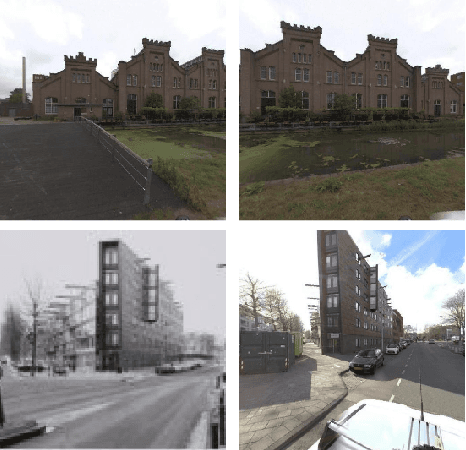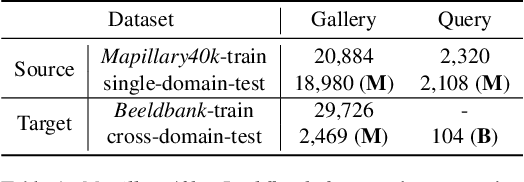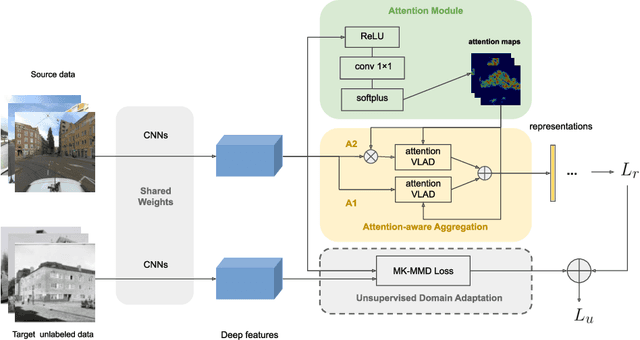Attention-Aware Age-Agnostic Visual Place Recognition
Paper and Code
Sep 11, 2019



A cross-domain visual place recognition (VPR) task is proposed in this work, i.e., matching images of the same architectures depicted in different domains. VPR is commonly treated as an image retrieval task, where a query image from an unknown location is matched with relevant instances from geo-tagged gallery database. Different from conventional VPR settings where the query images and gallery images come from the same domain, we propose a more common but challenging setup where the query images are collected under a new unseen condition. The two domains involved in this work are contemporary street view images of Amsterdam from the Mapillary dataset (source domain) and historical images of the same city from Beeldbank dataset (target domain). We tailored an age-invariant feature learning CNN that can focus on domain invariant objects and learn to match images based on a weakly supervised ranking loss. We propose an attention aggregation module that is robust to domain discrepancy between the train and the test data. Further, a multi-kernel maximum mean discrepancy (MK-MMD) domain adaptation loss is adopted to improve the cross-domain ranking performance. Both attention and adaptation modules are unsupervised while the ranking loss uses weak supervision. Visual inspection shows that the attention module focuses on built forms while the dramatically changing environment are less weighed. Our proposed CNN achieves state of the art results (99% accuracy) on the single-domain VPR task and 20% accuracy at its best on the cross-domain VPR task, revealing the difficulty of age-invariant VPR.
 Add to Chrome
Add to Chrome Add to Firefox
Add to Firefox Add to Edge
Add to Edge